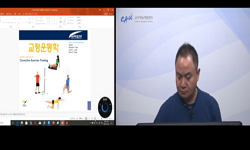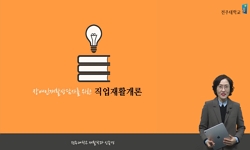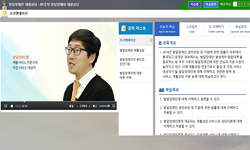This study aimed to evaluate the efficacy of music training on the improvement of musical perception among hearing-impaired listeners using a systematic review and meta-analysis. Article search was conducted from five databases, Scopus, ScienceDirect,...
http://chineseinput.net/에서 pinyin(병음)방식으로 중국어를 변환할 수 있습니다.
변환된 중국어를 복사하여 사용하시면 됩니다.
- 中文 을 입력하시려면 zhongwen을 입력하시고 space를누르시면됩니다.
- 北京 을 입력하시려면 beijing을 입력하시고 space를 누르시면 됩니다.



Efficacy of Music Training in Hearing Aid and Cochlear Implant Users: A Systematic Review and Meta-Analysis
한글로보기https://www.riss.kr/link?id=A107281841
-
저자
Nor Farawaheeda Ab Shukor (Hallym University) ; 이지현 (연세대학교) ; 서영준 (연세대학교) ; 한우재 (한림대학교)

- 발행기관
- 학술지명
- 권호사항
-
발행연도
2021
-
작성언어
English
- 주제어
-
등재정보
KCI등재,SCOPUS,SCIE
-
자료형태
학술저널
-
수록면
15-28(14쪽)
-
KCI 피인용횟수
0
- DOI식별코드
- 제공처
- 소장기관
-
0
상세조회 -
0
다운로드
부가정보
다국어 초록 (Multilingual Abstract)
This study aimed to evaluate the efficacy of music training on the improvement of musical perception among hearing-impaired listeners using a systematic review and meta-analysis. Article search was conducted from five databases, Scopus, ScienceDirect, Web of Knowledge, CINAHL, and PubMed. A total of 186 participants from 10 studies investigating the music training effects on individuals fitted with hearing assistive devices and outcome measurements were included. The meta-analysis showed standardized mean difference as a measure of the effect size, in musical improvement between the pre- and post-training. Although the funnel plot yielded an asymmetrical graph, the Egger’s regression showed no significant publication bias. Interestingly, subgroup analysis showed that the training effect was greater in children than in adults. With a necessity of longer training period to significantly improve their musical perception, cochlear implant only users had better effect compared to bi-modal users with both cochlear implant and hearing aids. However, the difference in the training effect between the users with and without previous musical experience was nonsignificant. The present study concludes that auditory music training brings hearing-impaired listeners into better musical perception while informing that training effects differ depending on age, duration of the training, and the type of hearing device used.
참고문헌 (Reference)
1 World Health Organization, "WHO global estimates on prevalence of hearing loss. Prevention of Deafness" World Health Organization
2 Innes-Brown H, "Tone, rhythm, and timbre perception in school-age children using cochlear implants and hearing aids" 24 (24): 789-806, 2013
3 Yucel E, "The family oriented musical training for children with cochlear implants: speech and musical perception results of two year follow-up" 73 (73): 1043-1052, 2009
4 Driscoll VD, "The effects of training on recognition of musical instruments by adults with cochlear implants" 33 (33): 410-418, 2012
5 Gfeller K, "Temporal stability of music perception and appraisal scores of adult cochlear implant recipients" 21 (21): 28-34, 2010
6 Asaridou SS, "Speech and music shape the listening brain: evidence for shared domain-general mechanisms" 4 : 321-, 2013
7 Moher D, "Preferred reporting items for systematic reviews and meta-analyses: the PRISMA statement" 6 (6): e1000097-, 2009
8 Di Nardo W, "Musical training software for children with cochlear implants" 35 (35): 249-257, 2015
9 Gfeller K, "Music-based training for pediatric CI recipients: a systematic analysis of published studies" 133 (133): S50-S56, 2016
10 Kraus N, "Music training for the development of auditory skills" 11 (11): 599-605, 2010
1 World Health Organization, "WHO global estimates on prevalence of hearing loss. Prevention of Deafness" World Health Organization
2 Innes-Brown H, "Tone, rhythm, and timbre perception in school-age children using cochlear implants and hearing aids" 24 (24): 789-806, 2013
3 Yucel E, "The family oriented musical training for children with cochlear implants: speech and musical perception results of two year follow-up" 73 (73): 1043-1052, 2009
4 Driscoll VD, "The effects of training on recognition of musical instruments by adults with cochlear implants" 33 (33): 410-418, 2012
5 Gfeller K, "Temporal stability of music perception and appraisal scores of adult cochlear implant recipients" 21 (21): 28-34, 2010
6 Asaridou SS, "Speech and music shape the listening brain: evidence for shared domain-general mechanisms" 4 : 321-, 2013
7 Moher D, "Preferred reporting items for systematic reviews and meta-analyses: the PRISMA statement" 6 (6): e1000097-, 2009
8 Di Nardo W, "Musical training software for children with cochlear implants" 35 (35): 249-257, 2015
9 Gfeller K, "Music-based training for pediatric CI recipients: a systematic analysis of published studies" 133 (133): S50-S56, 2016
10 Kraus N, "Music training for the development of auditory skills" 11 (11): 599-605, 2010
11 Cheng X, "Music training can improve music and speech perception in pediatric mandarinspeaking cochlear implant users" 22 : 2331216518-, 2018
12 George EM, "Music training and working memory: an ERP study" 49 (49): 1083-1094, 2011
13 Gfeller K, "Music therapy for preschool cochlear implant recipients" 29 (29): 39-49, 2011
14 Hutter E, "Music therapy as specific and complementary training for adults after cochlear implantation: a pilot study" 16 (16): S13-S21, 2015
15 Galvin JJ 3rd, "Melodic contour identification by cochlear implant listeners" 28 (28): 302-319, 2007
16 Borenstein M, "Introduction to meta-analysis" John Wiley & Sons 2009
17 Committee on Accessible and Affordable Hearing Health Care for Adults, "Hearing health care for adults:priorities for improving access and affordability. 2. Hearing loss: extent, impact, and research needs" National Academies Press
18 Hull RH, "Fourteen principles for providing effective aural rehabilitation" 58 (58): 28-30, 2005
19 Kraus N, "Experience-induced malleability in neural encoding of pitch, timbre, and timing" 1169 : 543-557, 2009
20 Moseley AM, "Evidence for physiotherapy practice: a survey of the Physiotherapy Evidence Database (PEDro)" 48 (48): 43-49, 2002
21 Kosaner J, "Developing a music programme for preschool children with cochlear implants" 13 (13): 237-247, 2012
22 Fuller CD, "Comparison of two music training approaches on music and speech perception in cochlear implant users" 22 : 2331216-518765379, 2018
23 Higgins JP, "Cochrane handbook for systematic reviews of interventions" Wiley 187-241, 2008
24 Egger M, "Bias in meta-analysis detected by a simple, graphical test" 315 (315): 629-634, 1997
25 Fu QJ, "Benefits of music training in mandarin-speaking pediatric cochlear implant users" 58 (58): 163-169, 2015
26 Anderson S, "Auditory training: evidence for neural plasticity in older adults" 17 : 37-57, 2013
27 Mielke M, "An assistive technology for hearing-impaired persons: analysis, requirements and architecture" 2013 : 4702-4705, 2013
28 Kinugawa K, "Aging-related episodic memory decline: are emotions the key?" 7 : 2-, 2013
29 Dennis M, "Age, plasticity, and homeostasis in childhood brain disorders" 37 (37): 2760-2773, 2013
동일학술지(권/호) 다른 논문
-
- 대한이비인후과학회
- 장용주
- 2021
- KCI등재,SCOPUS,SCIE
-
Crosstalk Between Mucosal Inflammation and Bone Metabolism in Chronic Rhinosinusitis
- 대한이비인후과학회
- Roza Khalmuratova
- 2021
- KCI등재,SCOPUS,SCIE
-
- 대한이비인후과학회
- 황세환
- 2021
- KCI등재,SCOPUS,SCIE
-
MicroRNAs Related to Cognitive Impairment After Hearing Loss
- 대한이비인후과학회
- 문석균
- 2021
- KCI등재,SCOPUS,SCIE
분석정보
인용정보 인용지수 설명보기
학술지 이력
| 연월일 | 이력구분 | 이력상세 | 등재구분 |
|---|---|---|---|
| 학술지등록 | 한글명 : Clinical and Experimental Otorhinolaryngology외국어명 : Clinical and Experimental Otorhinolaryngology | ||
| 2023 | 평가예정 | 해외DB학술지평가 신청대상 (해외등재 학술지 평가) | |
| 2020-01-01 | 평가 | 등재학술지 유지 (해외등재 학술지 평가) |  |
| 2013-10-01 | 평가 | 등재학술지 선정 (기타) |  |
| 2012-01-01 | 평가 | 등재후보학술지 유지 (기타) |  |
| 2011-01-01 | 평가 | 등재후보 1차 PASS (등재후보1차) |  |
| 2009-01-01 | 평가 | 등재후보학술지 선정 (신규평가) |  |
| 2007-06-14 | 학회명변경 | 영문명 : Korean Society Of Otolaryngology -> Korean Society of Otorhinolaryngology-Head and Neck Surgery |
학술지 인용정보
| 기준연도 | WOS-KCI 통합IF(2년) | KCIF(2년) | KCIF(3년) |
|---|---|---|---|
| 2016 | 1.14 | 0.1 | 0.84 |
| KCIF(4년) | KCIF(5년) | 중심성지수(3년) | 즉시성지수 |
| 0.71 | 0.6 | 0.324 | 0 |




 KCI
KCI







